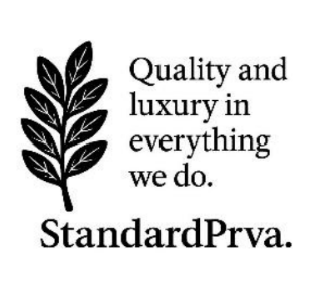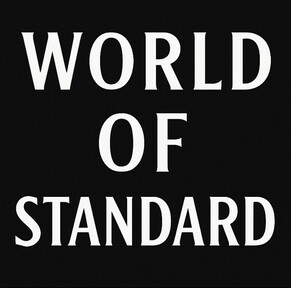Business and Ethics: Is It Better to Cry in a Rolls-Royce or Be Happy on a Bicycle?
02.10.2025By Miloš Stevanović and Božana Simić
The famous saying of Italian Gucci family member Patrizia Reggiani goes: “I’d rather cry in a Rolls-Royce than be happy on a bicycle.” With this provocative statement, she raised the eternal question of what is more important in life and business success – material wealth or personal satisfaction. Reggiani, the former wife of the heir to the Gucci fashion empire, enjoyed a lavish lifestyle and openly believed that luxury was worth every sacrifice. Ironically, it was precisely that obsession with wealth that later contributed to her being convicted for organizing the murder of her ex-husband. This dramatic story highlights an ethical dilemma: is it really better to “cry in a Rolls-Royce” – to achieve financial success at any cost – or is true happiness more important than outward glamour? In what follows, we will explore how this philosophy affects the modern view on business decisions, lifestyle, and the concept of success, with reference to the context of luxury, material values, and ethical implications in the business world.
Luxury as a Measure of Success in the Business World
Luxury cars, yachts, villas, and other status “toys” are often seen as the measure of business success. In business culture, there is often a belief that the size of a bank account and prestigious symbols like a Rolls-Royce mean someone has made it. Patrizia’s statement is just an extreme example of that attitude – the idea that it is better to have material wealth even if a person is not happy. A similar sentiment appeared in other cultures as well; for example, a contestant on a Chinese TV show became famous by saying she would “rather cry in a BMW than laugh on a bicycle,” which sparked heated debate about materialism among the public. Indeed, the appeal of luxury lies in the belief that money solves many problems and brings comfort. As one commentator cynically noted, people often believe that “the best things in life are free” only until they realize that things like private jets, yachts, expensive jewelry, or bottles of champagne can only be bought with money. In other words, material things provide a certain satisfaction and social status that, in the business circle, is interpreted as success.
However, this way of viewing success also has a dark side. When companies or individuals place luxury and profit above all else, ethics can fall into the background. Business history includes examples where the pursuit of profit at any cost has undermined ethical principles – often with catastrophic consequences. In such cases, external shine can hide a morally problematic background. Patrizia Reggiani, for instance, outwardly led a “wonderful life” full of luxury, from a penthouse in Manhattan to a chauffeur and expensive travels, but inwardly harbored so much bitterness that she chose to commit a criminal act. In doing so, she demonstrated how an obsession with wealth can erode personal values. Stories like this raise questions: is the shining image of success worth it if it comes with a high ethical price? And how far are people willing to go to sit in the “leather seats of a Rolls-Royce” instead of on a bicycle saddle?
The Appearance of Success Versus True Fulfillment
There is a clear difference between the appearance of success and actual fulfillment. Outward indicators – expensive vehicles, luxurious offices, titles and positions – can create the image of a successful life. But inner fulfillment, happiness, and peace of mind often don’t necessarily follow that outward image. Psychological research on the connection between money and happiness confirms that, beyond a certain point, more money doesn’t mean more happiness. An earlier study suggested that people’s emotional well-being improves up to an income level of about $75,000 a year, after which additional income has less and less impact. More recent research, however, shows that happiness continues to increase with income for most people even above that amount – but with one important exception. Around 15% of people fall into the group of “rich but unhappy,” for whom extra money doesn’t improve satisfaction after a certain point (e.g., above ~$100,000 per year). The reason is simple: some life hardships and “miseries” cannot be cured by all the money in the world. As the authors of one study vividly noted, “if you're rich and unhappy, more money won’t help” – if you suffer from a broken heart, serious illness or depression, a luxury car won’t wipe away your tears.
Instead, true happiness is drawn from non-material sources: quality relationships, good health, a sense of purpose, personal values, and a balanced life. Love, friendship, family, a good moral compass, humor and compassion – these are all, as some say, “the building blocks of happiness” that money cannot buy. A person can have billions in the bank and sit in the most luxurious car, yet still feel empty. On the other hand, someone living more modestly – perhaps “on a bicycle” instead of in a Rolls-Royce – can experience greater fulfillment if they live in harmony with themselves and are surrounded by positive relationships. In a business context, this means that success should not be measured only by profit or luxury, but also by how satisfied we are with the work we do, what impact we leave on others and on society, and what kind of balance we have achieved between career and personal life. In the long run, the inner sense of fulfillment and ethical integrity proves to be more valuable than any fleeting outward glitter.
Challenges of Balancing Profit and Ethics
Modern companies often face a challenge: how to achieve business growth and profit while simultaneously maintaining ethical standards? Balancing profit and ethics is not always easy. Market pressure, competition, and investor expectations can lead managers to take shortcuts that undermine moral principles. On the other hand, the public and consumers today increasingly value socially responsible business – so poor ethical decisions can result in a loss of reputation and trust, which in the long term harms profit itself.
Examples from practice illustrate these extremes:
Violating Ethics for Profit – “Dieselgate”
A well-known case is the 2015 scandal of the car manufacturer Volkswagen, when it was discovered that the company had cheated on emissions tests to improve sales. In the short term, such deception was meant to increase profit and market share, but in the long run, it caused a catastrophe for the company's reputation. Volkswagen had to pay around $25 billion in fines and damages in the United States alone due to this ethical lapse, along with incalculable damage to its brand worldwide. This case shows how ignoring ethics for the sake of profit can lead to tears – and not the kind in a Rolls-Royce, but tears caused by court rulings and the loss of public trust.
Putting Ethics Before Profit – Example of Employee Salaries
The opposite example comes from the financial sector in the USA, where young CEO Dan Price made an unusual decision. He cut his own salary and set a minimum annual wage of $70,000 for all employees of his company, Gravity Payments. This move meant short-term profit sacrifice but brought numerous benefits: employees were more satisfied and loyal, and the company received global praise as a pioneer of ethical business. The public welcomed this step as proof that it is possible to run a successful business while also caring for the well-being of the people working for it.
These two examples reflect the essence of the challenge: the first teaches us that disregarding moral principles for short-term gain can result in long-term disaster, while the second shows that ethical behavior can be an investment that pays off many times over through loyalty, motivation, and a good corporate image. Of course, most real situations are not black and white. Companies weigh daily between decisions that increase profit and those that are better for employees, customers, or the community. The key realization is that profit and ethics do not have to be in conflict. On the contrary, in modern business, it is increasingly evident that long-term sustainable success lies precisely in the combination of these two aspects.
Many large enterprises today integrate the concept of social responsibility and sustainability into their strategies. The terms CSR (Corporate Social Responsibility) and ESG (Environment, Social, Governance) have become an essential part of corporate vocabulary. Companies realize that a reputation built on compliance with laws, environmental care, and contribution to the community provides a competitive advantage. Consumers and partners reward responsible companies with loyalty, while they sanction those who bypass ethics. Even leading luxury brands such as Gucci and Burberry are introducing ambitious sustainability strategies, trying to show that the world of fashion and luxury can respond to ethical challenges like ecology and fair labor conditions. In short, it is increasingly clear that “business ethics” is no longer an oxymoron but a necessary condition for long-term success.
Standard Prva: A Fusion of Ethics and Luxury in Practice
A particularly interesting example of balancing a luxury brand with an ethical approach to business comes from Bosnia and Herzegovina. Standard Prva d.o.o. is a corporation based in Bijeljina that encompasses a wide portfolio of activities – from law and legal services, through accounting and tax consulting, to investments, real estate, and software solutions. The founder and owner of the group, lawyer Miloš Stevanović, created a brand that aims to rival global standards of prestige and luxury, but rooted on home ground. The company's philosophy explicitly states the ambition to “create a global holding on the Balkans that is both visionary and luxurious.”
Standard Prva builds a high-profile image – their branches are expanding toward international destinations, and their services are aimed at clients seeking top-tier quality and trust. However, what sets Standard Prva apart is the emphasis it places on ethics and social responsibility within this luxury framework.
The mission and vision of Standard Prva emphasize long-term sustainable growth with respect for rules and the community. As they point out, the goal is to provide the best service to clients and create new value not only for the owners but also for the local community in which they operate. For this company, employees are not merely a means to profit but “the most important link in growth and development” – which suggests that caring for people within the organization is considered just as important as financial indicators. The management team is publicly described as a group of “honest and upright individuals” dedicated to their work, who strictly comply with all legal regulations and the highest international business standards. This tone “from the top” sets the foundation for an ethical culture within the group.
Standard Prva translates its commitment to ethics into concrete practices. They have introduced internal policies aligned with ESG standards (environmental protection, social responsibility, and corporate governance). This means all group members have started reducing paper use and digitizing processes, conducting waste management audits, and making efforts to minimize negative environmental impact. At the same time, the company is actively involved in supporting the local community – financially supporting local initiatives and striving to make its environment more sustainable and healthier. Interestingly, the implementation of these ESG goals was entrusted to a young team member with a hearing impairment, Miloš Pantić. Instead of limiting him, Standard Prva turned his handicap into an inspiring story of inclusion: Pantić successfully leads digitalization and sustainability processes in the company, while the company demonstrates that it values and supports diversity. Additionally, Standard Prva provides scholarships to students and helps people with special needs, aiming to send the message that all hard-working individuals deserve an equal chance in the community.
The reception area of Standard Prva exudes elegance and modernity, reflecting the image of prestige that the company builds. The interior of the business premises is designed to leave a strong first impression on clients – from the spacious reception lobby to designer details that communicate luxury. This environment sends a message of success and brand confidence. Still, behind the shiny marble counter and the logo that suggests exclusivity, Standard Prva seeks to weave the “soul” of the brand by adhering to its ethical principles. Clients in such an environment can also feel a sense of trust, knowing that the company strives for high standards not only in service but also in professional ethics.
An artistic mural in the offices of Standard Prva symbolizes the blend of business and culture that the corporation prides itself on. Through aesthetic choices – such as fresco-style paintings and artworks adorning the walls – the company emphasizes that it sees luxury in a broader sense: not just as material wealth but also as richness of spirit, art, and heritage. This aligns with the work of the Branislav and Vesna Stevanović Foundation, founded by the Stevanović family precisely to promote culture, education, and humanity. The Foundation’s mission is to “encourage a lifestyle in accordance with ethics and civilizational norms.” It provides scholarships to the best students and pupils but also helps those who need it most, connecting tradition and modern society through cultural programs and humanitarian activities. Such projects confirm that Standard Prva builds its luxury identity not only on financial strength but also on the values of humanity and knowledge.
The example of Standard Prva shows that it is possible to reconcile prestige and principles. Their slogan could be summarized as: “a vision without fear, a brand with a soul, capital with wings” – implying courage in business ventures while preserving integrity and giving capital a positive purpose. While the glamorous side of business (luxurious offices, high profits, global ambitions) ensures visibility and competitiveness, the ethical side (caring for the community, employees, culture, and the environment) ensures sustainability and respect. With this, Standard Prva ranks among modern companies that prove that “being better” in business doesn’t only mean being bigger or richer, but also more responsible.
Conclusion
So, in the end, is it better to cry in a Rolls-Royce or be happy on a bicycle? This metaphorical dilemma leads us to reexamine our own values in the business and life context. Some will say that money and luxury make life easier – and it’s true that financial security solves many worries. But it’s equally true that happiness and fulfillment don’t come automatically with wealth. The ideal that modern business ethics strives toward is a scenario in which this dilemma becomes a false one: why shouldn't we strive to be both successful and happy at the same time? In practice, this means building careers and companies that generate profit, but not at the expense of our principles or the well-being of others.
Our examples have shown two sides of the coin. On one side, blindly chasing luxury can lead to moral failings and personal tragedy – tears in an expensive car are still tears. On the other side, choosing the ethical path might mean a slower climb to the top, but that path preserves a clean conscience and brings satisfaction that can’t be bought. In today’s world, it’s increasingly clear that sustainable business is based on measuring success not only by financial statements, but by the quality of impact on people and society. Companies that understand this manage to build loyalty and a brand that lasts.
In the end, the real business maxim could be: it's best not to cry at all. Whether we're riding in a Rolls-Royce or on a bicycle, there will be no tears if we have achieved balance – if we do what we love, live according to our values, and share success with others. Business and ethics do not have to be on opposite sides; on the contrary, their union brings the kind of success that fulfills and leaves a lasting mark. That kind of success means being both wealthy and happy – perhaps not euphorically smiling on a bicycle, nor tearful in a luxury limousine, but fulfilled and at peace, in any circumstance.
/ / /
"Standard Prva" LLC Bijeljina is a company registered in Bijeljina at the District Commercial Court in Bijeljina. Company’s activities are accountancy, repurchases of receivables, angel investing and other related services. Distressed debt is a part of the Group within which the company repurchases the receivables, which function and are not returned regularly.
Lawyer’s Office Stevanović is the leading lawyer’s office in the region with the seat in Bijeljina. The LO abbreviation represents Lawyer’s Office of Vesna Stevanović and Lawyer’s Office of Miloš Stevanović.
Contact for media press@advokati-stevanovic.com or via telephone 00 387 55 230 000 or 00387 55 22 4444.




